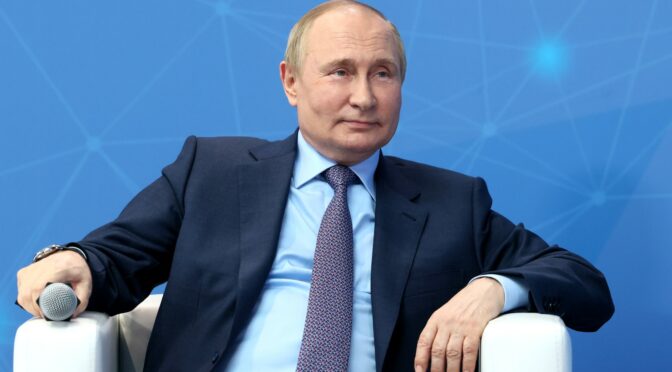Article published in The Daily Telegraph, 25 August 2022. © Richard Kemp
Putin looks set to win his bet against the fractured West. His calculation on swallowing up Ukraine without Nato intervention sufficient to stop him was based on at least some realities – namely his own successful exploitation of Western inaction in Syria, US failure in Iraq and Afghanistan, and France being driven from Mali after a 10 year campaign.
Surveying this woeful lack of strategic cohesion and resolve, Putin did not buy into the illusion that overtook so many of his opponents at the start of this war: that the invasion had united the West, that the shock had given Nato a semi-permanent new purpose and that it was a miscalculation to think he could get away with another outrage after the 2014 invasion of Crimea.
Early on that rosy picture did appear to be true. Scholz promised big defence spending increases. The supply of arms to Ukraine was patchy but shifted the dial. Massive sanctions caused real pain to the Kremlin. There were problems including Macron’s continued addiction to grand geopolitical bargains which undercut unity and encouraged Putin. Germany remained too dependent on Russian energy, providing vast sums to help finance Russia’s war. Despite other flies in the ointment – such as India sitting on the fence – broadly speaking unity held.
That may all be about to change, with European support fracturing. For the last two months no EU member has pledged new material support to Ukraine. The EU foreign policy chief, Josep Borrell, admitted this week that keeping the bloc together is a ‘day-to-day struggle’. His struggle is going to get harder. Macron no longer has a majority in his parliament and that will inhibit his ability to support Ukraine for the long term as he recently promised. Italian elections next month are likely to lead to a coalition that includes parties strongly opposed to backing Ukraine against Russia.
The major factor of course is recession in Europe, fuelled by Moscow’s energy blackmail. Expect Putin to tighten the screws as temperatures drop. For him, it makes strategic sense: the more pain increased energy prices inflict on businesses and consumers, the greater the pressure on leaders to ease sanctions and the lower their will to fund his enemies. With industry slumping and inflation rising, especially energy and food prices, EU leaders are already looking at loosening sanctions to lessen turmoil in the eurozone economy. European citizens are questioning why they should bear the consequences in their daily lives of Putin’s war, with polling suggesting increasingly greater concern for their financial wellbeing than for the defeat of Russian aggression.
A similar picture is developing across the Atlantic, where Biden has consistently blamed Putin’s war for economic woes in the US. Recent polling shows only a wafer-thin majority still support the president’s backing of Ukraine, down on previous sampling and likely to drop further as the pain grows. Biden’s promise yesterday of another $3 billion dollars of military aid to Ukraine is likely to be his last major act of support as the midterm elections draw near. But even that huge sum is not going to turn the tide of war – it is allocated to long-term weapons programmes that will have no effect on the battlefield for years.
Kyiv is in desperate need now. It is almost entirely reliant on Western arms – and as Russia continues to inflict heavy casualties on Ukrainian troops, depleting their already threadbare capability for large-scale ground combat, greater numbers of stand-off munitions will become even more critical. In contrast to all the signs from Western Europe, Britain and the Eastern European countries remain unwavering, with Boris Johnson the only European leader to promise increased munitions supply in the last two months and Foreign Office officials on a diplomatic campaign to European capitals, arguing against cutting support for Ukraine.
Persuading the British people that the economic distress they will suffer is a price worth paying for standing against tyranny in Europe will be a major test for Johnson’s successor and Liz Truss’s proposal to release intelligence exposing Putin’s wider aggressive design is on the right lines. But continued support from the UK and Eastern Europe, however stiff, will not be enough. Unless unified Western backing can be propped up, Putin’s central calculation will be proved right – that his will to win is greater than the West’s will to resist.

